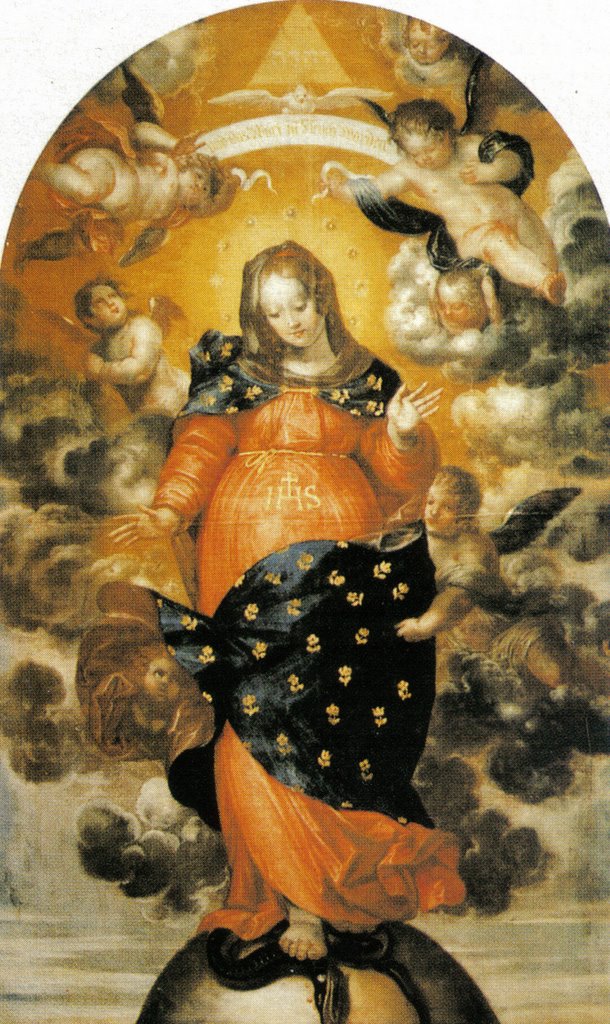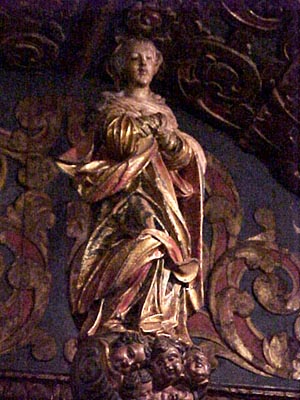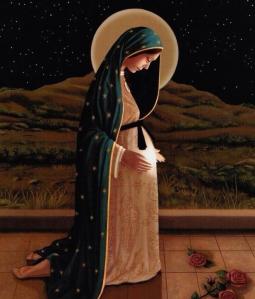Merry Christmas! We are now in the Holy Octave of Christmas, and have begun to celebrate the arrival of our new-born King. Amidst this special time of celebration, we continue to abound in opportunities to examine our hearts and seek ever greater renewal to allow Christ's Kingship to reign within. Just a few short days ago, Pope Francis addressed the Curia concerning 15 spiritual ailments that can stifle the Holy Spirit and spiritual growth. He pointed out that many of these interior illnesses and dispositions lead to greater sins of pride, laxity, and lukewarm behaviors and ideas. Among them, he listed excessive activity, gossip, dour personalities, defiance of authority, vanity, and spiritual schizophrenia, to name a few. You can read more about them here: http://www.catholic.org/
I was thinking about two Christmas movie classics that encapsulate the Christmas spirit or lack thereof and can be used as a measuring stick for my own interior dispositions and external actions towards others. Those two movies are A Christmas Carol and It's a Wonderful Life.
A Christmas Carol, Ebenezer Scrooge personifies what we do not want to become as Christmas pilgrims on our journey. Scrooge is mean-spirited, miserly, and cares nothing about his family, his employees, or those in need. He only cares about money and ensuring that his worldly possessions and concerns are taken care of at the expense of everyone else. His relationships are lost, and his sense of wonder and joy snuffed out by his pre-occupation with self and earthly concerns that are passing. And instead of sharing the blessings and gifts that he has with others, he hoards them and lords them over others. It is a sad state of affairs as he revisits Christmas Past, and sees the warmth that he enjoyed with family, friends, and a special woman that he loved, and how he lost it due to his narcissistic behavior and lack of care and concern for others.
He then witnesses Christmas Present and how these same people are lamenting his absence and how he used to be a part of their celebration but has isolated himself to such an extreme that no one cares to be around him. Finally, Christmas Future is revealed and he sees that as his life fades he is increasingly alone and then faces death where his isolation and darkness become a foreshadowing of afterlife in hell. All has passed and he is left with nothing. Only darkness surrounds him as He has removed God's love and the
love of others from his life.
It has him shaking in his boots and an 'aha' moment, an epiphany occurs as he realizes the errors of his ways and seeks to remedy them. He comes to understand in his heart that all things are passing but love for God and one another, and that when one shares of their gifts and bounties one receives back a hundred-fold.
In contrast, A Wonderful Life focuses on the life of George Bailey who is depicted as an affable, caring, and self-sacrificing individual from a very young age. As a boy, he is given the opportunity to save his brother's life when the ice breaks while sledding, and as a result loses his hearing in one ear. He intervenes when the pharmacist is grieving over losing his only son at war, and mistakenly gives a patient the wrong medicine that would potentially kill her; and instead of going off to college and traveling the world as he has always dreamed of, he stays in the small town of Bedford Falls after the death of his father, to honor his legacy and help his community to grow and have opportunities to own their own homes and build better lives.
Again and again, George puts others ahead of himself. At a pivotal crisis, when their funds are accidentally misplaced by Uncle Billy, it appears to him that all of his sacrifice has been for naught. He prays to God for help on Christmas Eve, but continues to despair and drink, believing that he is worth more dead than alive, and intending on committing suicide. He laments that it would have been better if he had never been born. His Guardian Angel Clarence saves his life, and takes him on a journey as to what life would have been like for his family and the entire community of Bedford Falls if he had never been born. During this transport in time, George sees that his life has deeply touched the lives of many others, saved many lives, and influenced his entire small community of Bedford Falls. He comes to realize that regardless of what happens with the outcome of the missing money, he has lived a wonderful life and has much to live for and look forward to.
In the touching conclusion, we see all the people of the town come to his family's home and contribute the missing funds in order that his bank does not have to declare bankruptcy and George doesn't have to face prison time. We see that his generosity and self sacrifice all these years has come back full circle and those around him love and respect him, and will do anything to help him. It truly is a moving film of how we want to live our lives as Christians and act in selfless love for others.
1. Do we listen to the voice of the Holy Spirit and the interior promptings of our Guardian Angels or do we have closed hearts and hearing? Are we open to what God is telling us through other people, the voice of conscience, or do we ignore them? Do we foster listening to God and to others who want to help us through silence and time for prayer, or do we ignore, reject, or run from these voices that seek to help and protect us?
2. Are we affable and approachable or are we joyless and cantankerous like Scrooge? Do others dread seeing us or spending time with us because of our self-centeredness and negativity, or do we spread joy, laughter, and the love of friendship and concern wherever we go?
3. Are we self-sacrificing and seek to serve others, or are we miserly and selfish? Do we always think of the other as Jesus asked of us, or do we place primacy on our own plans to the point of self-adulation and worship?
4. Do we seek ways to serve the poor, the infirm and those more unfortunate than ourselves, or do we ignore, or even worse, despise the cries of the poor as Scrooge did before his conversion? In a related way, are we aware of the despair that some feel during the Christmas season due to loss, family division, severe disappointment or other forms of mental distress and illness? Do we seek to bring comfort to those who mourn, and touch the lives of those who contemplate suicide? Do we pray for the least of our brothers and sisters whether they are in spiritual, mental or spiritual poverty? See this examination of conscience for further guidance on fulfilling the Beatitudes in life: See
https://paxchristiusa1.files.wordpress.com/2011/03/eoc.pdf
5. Are we able to change plans quickly and in peace in order to do what God requires of us in the present moment, as George Bailey did time and again, or de we cling to our agendas and plans to the point of ignoring or rejecting the Divine Will and the needs of others? Do we trust that God is always with us and that His plans are always best for us in a childlike spirit, or do we doubt the love of God, only trust in our own plans, and refuse to surrender to His loving providence?
These are points that we can ponder during this Christmas Octave and as we approach the New Year and the Feast of Mary, Mother of God. It is a time of great joy as well as a time to seek to grow and empty ourselves, as Our Lord did when, "He emptied Himself, taking the form of a slave, and being born in the likeness of men." [Ph 2:7] Merry Christmas, everyone!












